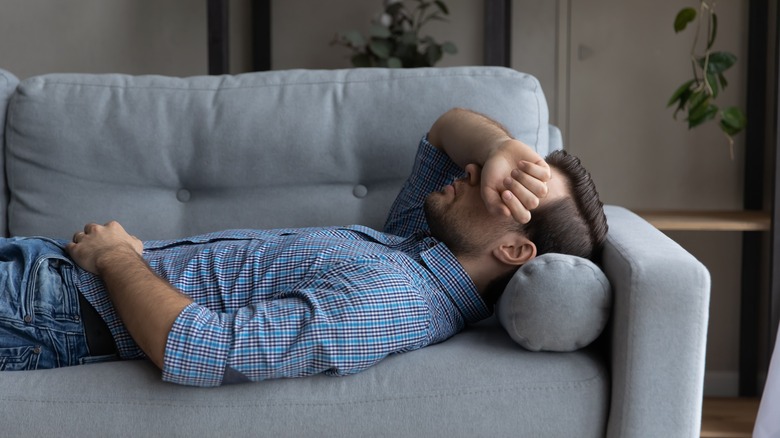We all love being able to have a good night’s rest, and waking up refreshed and rejuvenated for the day ahead of us. The act of sleeping or napping can sometimes, however, serve as a sort of escape from the stresses of everyday life for some people. Daytime sleepiness can be especially prevalent in individuals who are struggling with depression, as Psych Central reports that over 90% of people who live with depression feel excessively tired and fatigued. Although “depression naps” are not an official clinical term, Healthline explains that the use of the phrase has become increasingly popular on social media.
Sleep disturbances are a common symptom of depression and other mood disorders. Someone with depression may feel the urge to take more naps throughout the day and might have trouble sleeping at night. Researchers have observed a significant relationship between sleep and depression, yet they are not completely certain about the directionality between the two. According to Healthline, studies have shown that individuals struggling with insomnia are 10 times more likely to develop depression than those who receive a healthy amount of sleep.
In order to compensate for the lack of sleep at night, people may be more likely to take naps during the day. Although this might seem convenient, is taking a depression nap to make up for lost sleep or cope with everyday stresses actually beneficial?
Are depression naps helpful or harmful?

It appears as though taking a depression nap throughout the day has both its advantages and disadvantages. According to Psych Central, there has been research suggesting that taking naps may improve memory recall in some individuals. In particular, people with depression appeared to have enhanced memory recall compared to their non-depressed counterparts in a 2024 study published in Nature and Science of Sleep. Additionally, for those with depression, it might feel relieving to shut off the demands of the world for a short period of time.
A clinical professor of psychology at the University of California, Los Angeles, Emanuel Maidenberg, told Today that depression naps might be helpful in the short-term, but that recurring dependence on them can either be a symptom of low energy or an unhealthy coping mechanism of avoidance. Dr. Helen Farrell, a psychiatrist at Harvard Medical School, further explained to Today that using a depression nap as an escape from reality can be unhealthy, as they are being utilized to run away from your feelings instead of coping with them in healthier ways.
She shares that a healthy nap is short, occasional, and has you waking up feeling more energized. In the event that your naps become more frequent, last for longer periods of time, or have you waking up feeling drained, it might be a good idea to consult with a medical professional to get to the root of your daytime sleepiness.








